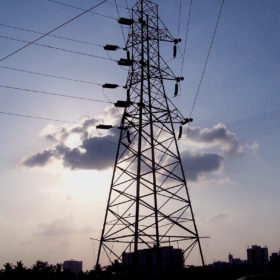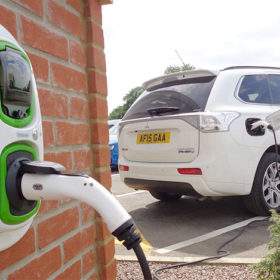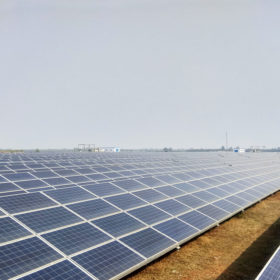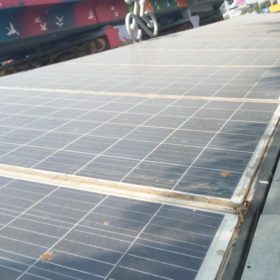Guidelines issued for enlistment of approved PV models and manufacturers
National Institute of Solar Energy (NISE) will carry out inspections, verifications and quality checks on behalf of the Ministry of New and Renewable Energy (MNRE).
India to open bids for $5bn of new transmission line capacity
In response to feedback from the domestic renewable energy sector, the Indian government has revealed plans to launch $5 billion of tenders for new transmission lines, starting in phases from this summer.
Revisit forecasting and scheduling regulations for renewable power generation: NSEFI to MERC
To enhance the effectiveness of settlement mechanism, the National Solar Energy Federation of India (NSEFI) has asked the Maharashtra Electricity Regulatory Commission (MERC) to allow aggregation of generation schedule based on independent power producer or quality coordinating agency and considering the same for calculation of deviation. Removal of the rescheduling charges and dual payment mechanism are among other changes sought.
Delhi to get 131 EV charging stations in 3 months
While these electric vehicle (EV) charging facilities will mainly come up at CNG and petrol pumps, 33 are planned for Metro Stations as well, in addition to one each in the parking area at Indira Gandhi International Airport and Jamia Millia. These are likely to become operational within three months.
Norway to install wireless charging system for taxis at stands
Finnish clean-energy company Fortum, in cooperation with US-based inductive charging specialist Momentum Dynamics, will install induction-based infrastructure to allow for wireless charging up to 75 kilowatts.
Economies of scale, a silver lining for solar – Waaree Energies Interview
Mumbai-based Waaree Energies has solar PV module manufacturing capacity of 1.5 GW—claimed to be the largest in India. At a time when the company is expanding to newer markets with customized solar modules for electric vehicles, Sunil Rathi, Director, Waaree Energies spoke to pv magazine about manufacturing in the current duty regime.
Solar Park Scheme changes set to drive up India solar power prices
The Ministry of New and Renewable Energy has addressed complaints by solar developers about a lack of power evacuation infrastructure by changing its solar park guidelines. Under the new rules, though, developers are likely to incur higher costs.
Andhra Pradesh pulls back on open access solar
The state has decided to withdraw almost all incentives available to open access solar, including exemption from electricity duty and distribution losses for projects injecting power at 33 kV or below. The policy reversal—clearly to appease state discoms—is likely to impact capacity addition.
FAME-II: Inter-ministerial panel set up for electric mobility projects
The committee is constituted for overall monitoring, sanctioning and implementation of the scheme, according to an order of the Department of Heavy Industries.
No construction permits without solar in one town in Telangana
The municipal council of Karimnagar has mandated rooftop solar on new buildings of a certain size as part of the Ministry of New & Renewable Energy’s Smart City Mission, which requires 10% of municipal energy to be generated from solar.















